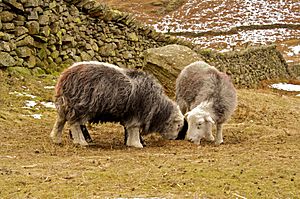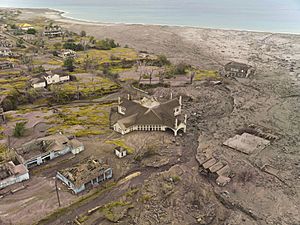Science studies facts for kids
Science studies is a field that looks at how science works in the real world. It explores how scientific knowledge is made, shared, and understood by people. This area of study is interdisciplinary, meaning it combines ideas from many different subjects.
Like cultural studies, science studies is defined by what it studies. It uses many different ideas and methods. It borrows from fields like history, philosophy, and even how we measure science (scientometrics) or study human behavior (ethnomethodology).
Science studies helps us understand how science is judged and how science policies are made. It also looks at how science and technology are connected. It studies how experts and everyday people share and use knowledge in public.
Contents
What Science Studies Explores
This field started by looking closely at itself and how it works. At first, it focused on how scientists talk and write about their work. Soon, it began to explore how scientific experts connect with politics and the public.
For example, science studies looks at topics like:
- Bioethics (right and wrong in biology and medicine)
- Bovine spongiform encephalopathy (BSE, or "mad cow disease")
- Pollution and global warming
- Biomedical sciences and physical sciences
- Predicting natural hazards
- The effects of events like the Chernobyl disaster
- How science policies are made and reviewed
- How experts give information to governments to help them make decisions
This field asks important questions. For example, what makes someone an expert? How are experts different from regular people? How do experts' ideas fit with the values and policies in a democratic society?
Researchers in science studies look at many things, such as:
- How scientists work in their labs and with their tools (like Karin Knorr-Cetina and Bruno Latour)
- The link between science and technology (like Wiebe Bijker and Trevor Pinch)
- How science, technology, and society interact (like Peter Weingart and Helga Nowotny)
- The language and way scientists talk about their work (like Charles Bazerman)
- The beauty and visual side of science, and how feelings and thinking affect scientific progress
- How new ideas are discovered and developed
- Large research projects and institutions, like particle colliders (Sharon Traweek)
- The rules of research ethics, science policy, and the role of universities
History of the Field
The idea of studying science itself is not new. In 1935, Polish sociologists Maria Ossowska and Stanisław Ossowski suggested creating a "science of science." They wanted to study how science works and what influences scientists. Another Polish sociologist, Florian Znaniecki, had a similar idea in 1923.
Even earlier, in 1873, Aleksander Głowacki (known as Bolesław Prus) gave a lecture. He said that one day there would be a science about how to make discoveries and inventions. He believed this science would help many fields of knowledge.
Thomas Kuhn's book, Structure of Scientific Revolutions (1962), greatly increased interest in the history of science. Kuhn suggested that science doesn't just progress in a straight line. Instead, it moves through different "paradigms." Paradigms are big ideas or ways of thinking that shape what is considered true in science.
Science studies tries to understand key differences. For example, the difference between science and technology, or nature and culture. These differences help create different scientific fields and practices.
The sociology of scientific knowledge started at the University of Edinburgh. There, David Bloor and his team developed the "strong programme." This idea suggested that both "true" and "false" scientific theories should be looked at the same way. They argued that social factors, like culture and self-interest, influence both.
It was sometimes hard to study natural science topics using sociological methods. This led to what were called the US science wars. Some worried that looking at natural sciences as a social creation might challenge the idea of scientific facts. It also seemed to question the objectivity of sociology itself.
Scholars like Bruno Latour pointed out a key idea in modern thinking. This was the separation between nature (things, objects) as something real and society (people, states) as something made up. Latour argued that this separation led to big global problems. He suggested we should reconnect the social and natural worlds.
In the 1980s, scholars like Trevor Pinch and Steve Woolgar started including "technology" in their studies. They called their field "science, technology and society." This focus on technology helped science studies connect with other academic programs.
More recently, a new method called mapping controversies has become popular. It helps students in engineering and architecture understand complex debates. In 2002, Harry Collins and Robert Evans called for a "third wave" of science studies. This wave would focus on expertise and experience. It would look at how the line between experts and the public is blurring.
How Science Studies Helps with Hazards
Sheep Farming After Chernobyl

A good example of how science studies helps is the case of sheep farming in Cumbria, UK. This happened after the Chernobyl disaster in 1986. Brian Wynne studied how sheep farmers reacted to rules put in place because of radioactive contamination. The farmers lost money, and their resistance to the rules was seen as unreasonable.
It turned out that the radioactivity was actually from the Sellafield nuclear plant nearby. The experts who set the rules were completely wrong about the source. This example showed the need to involve local knowledge and the experiences of everyday people. It highlighted that local knowledge often has a strong connection to specific places and history.
Volcanology and Science Studies

Donovan et al. (2012) used science studies to look at how knowledge and expert advice are created for active volcanoes. They surveyed volcanologists and interviewed scientists in the UK, Montserrat, Italy, and Iceland. They asked experts what they thought the purpose of volcanology was. They also asked about the most important eruptions in history. The study tried to find eruptions that changed volcanology as a science. It also looked at the role of scientists in making policies.
A main focus was the 1997 Montserrat eruption. This eruption, though it killed only 19 people, had a huge impact on the local society. It destroyed important buildings, like the island's airport. About 7,000 people, or two-thirds of the population, left Montserrat.
The Montserrat case put a lot of pressure on volcanologists. Their expert advice suddenly became the main guide for public policy. The science studies approach gave valuable insights into this situation. There were problems with scientists communicating with each other. It was hard to match scientific uncertainty (common with volcanoes) with the need for clear advice for politicians.
The Montserrat volcanologists started using statistical models to guess the chances of certain events. This was a somewhat subjective method. However, it helped them combine different expert opinions and experiences step by step. It also included local knowledge and experience.
Today, volcanology is changing how it understands knowledge. It now includes more research into risk assessment and risk management. This needs new ways of collecting knowledge that go beyond just one scientific field. It combines both qualitative (descriptive) and quantitative (number-based) results.
Experts and Democracy
Science has become very important in Western democratic societies. These societies rely on new ideas and technology to deal with risks. What people believe about science can be very different from what scientists believe. This can be due to moral values, different ways of knowing, or political reasons.
The idea of experts having authority is challenged in today's societies. This is especially true when experts interact with everyday people and decision-makers. The role of experts in democracies is a big topic for debate among science studies scholars. Some argue for a more spread-out understanding of expertise. They believe many different people can be experts (Sheila Jasanoff and Brian Wynne). Others argue for a more detailed understanding of what expertise is and its social roles (Collins and Evans).
See also
 In Spanish: Estudios de ciencias para niños
In Spanish: Estudios de ciencias para niños
- Logology (study of science)
- Merton thesis
- Public awareness of science
- Science and technology studies
- Science and technology studies in India
- Social construction of technology
- Sociology of scientific knowledge
- Sokal affair
 | Sharif Bey |
 | Hale Woodruff |
 | Richmond Barthé |
 | Purvis Young |

